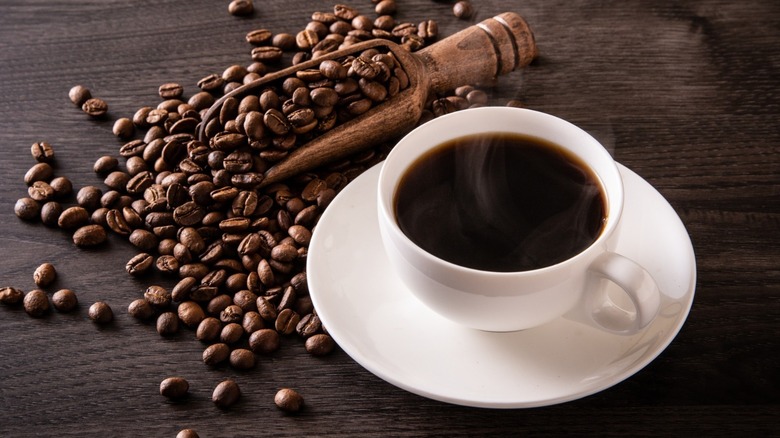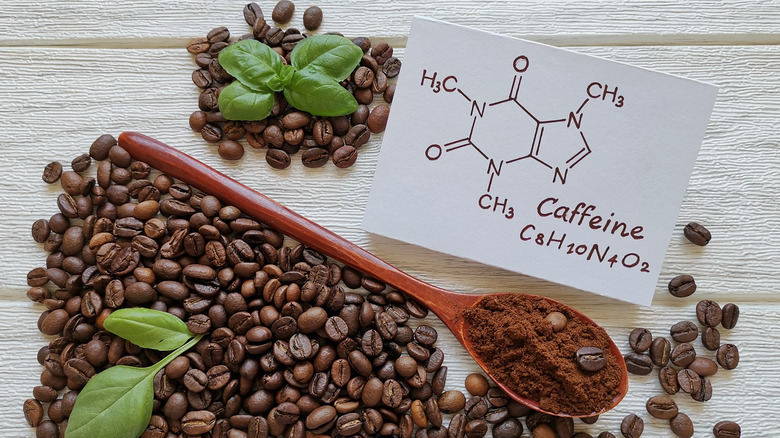Why Caffeine Is A World-Favorite Drug, According To Michael Pollan
Let's face it, waking up in the morning and dragging ourselves out of bed can be a slow process, especially if it was a restless night's sleep. Thank goodness for caffeine! For those of us who need a little pep in our step or a spark of energy to start the day, having that first cup of joe in the morning can be a lifesaver. We might not associate caffeine with a drug, but it's one stimulant the world has come to rely on as an easy pick-me-up when needed. Whether it's a steaming cup of coffee, a soothing sip of tea, or a quick buzz from an energy drink, caffeine comes in many forms and is easily accessible (via Harvard T.H. Chan School of Public Health).
When consumed, caffeine increases brain activity and changes how our bodies function, which is why it is classified as a drug. For instance, according to Better Health Channel, you may experience a persistent headache after a few days without drinking your regular morning coffee. To avoid symptoms of caffeine withdrawal, we may choose to keep it flowing, developing that focused mental clarity and jolt of energy our bodies have become dependent upon. So how did this wonder drug become the world's favorite way to wake up?
From natural insecticide to a daily essential
Michael Pollan, Professor of Science and Environmental Journalism and author of "This is Your Mind on Plants," shed some light on the history of caffeine in a podcast (via Gastropod) where he and the hosts explain how caffeine comes from coffee, tea, and even citrus plants. The original purpose of the caffeine in these plants was to ward off insect predators. Although caffeine had been introduced to other civilizations such as the Arabian Peninsula for "religious observance" (per Eater), it wasn't until the 17th century that caffeine would be consumed by people and fully experienced in drinks such as coffee and tea in the Western world. These caffeine alternatives led to a reduction in alcohol use and in consumption of less-than-clean drinking water at that time. They also provided a sense of focus and an increase in productivity. Pollan told Eater, "Its effect on Western civilization is profound: It ushers in what amounts to a new form of consciousness, a new way of perceiving the world that was incredibly helpful to things like the scientific revolution and the capitalist revolution."
According to Kuakini Hospital, about 90% of adults in the U.S. consume caffeine regularly, and it reigns supreme as the most common drug. It's averaged that about 300 milligrams of caffeine daily are the norm for its consumption. So, perhaps the next time you reach for that cup of coffee or tea, you'll ponder the positive impact caffeine can have on your mental alertness and overall productivity throughout your busy day.

